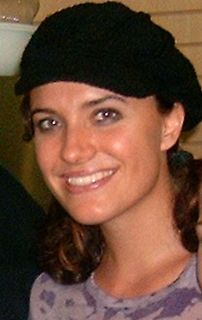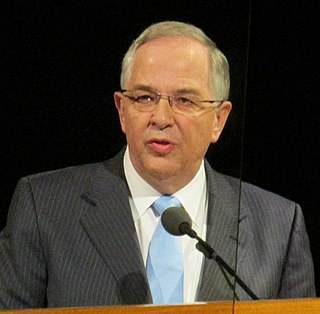A Quote by Mark Buchanan
Sometimes doubting is not a lack of faith, but an expression of it. Sometimes to doubt is to merely insist that God be taken seriously not frivolously, to insist that our faith is placed in and upheld by something other than seeming conjuring tricks.
Related Quotes
Sometimes we want things we were not meant to have. Because he loves us, the Father says no. Faith trusts that no. Faith is willing not to have what God is not willing to give. Furthermore, faith does not insist upon an explanation. It is enough to know His promises to give what is good-he knows so much more about us than we do.
Out of the element of participation follows the certainty of faith; out of the element of separation follows the doubt in faith. And each is essential for the nature of faith. Sometimes certainty conquers doubt, but it cannot eliminate doubt. The conquered of today may become the conqueror of tomorrow. Sometimes doubt conquers faith, but it still contains faith. Otherwise it would be indifference.
We don't always possess faith in the sense of having a clear embodiment of something to hang on to. The relationship between the intellect and faith is a very curious one. Sometimes the intellect can point us to faith, sometimes the intellect can stand in the way of faith. Sometimes, as St John of the Cross points out, we have to darken or blind the intellect in order to have faith.
Take faith, for example. For many people in our world, the opposite of faith is doubt. The goal, then, within this understanding, is to eliminate doubt. But faith and doubt aren't opposites. Doubt is often a sign that your faith has a pulse, that it's alive and well and exploring and searching. Faith and doubt aren't opposites, they are, it turns out, excellent dance partners.
Faith always presented to the mind the idea of an abnormal intellectual condition, of the subversion or suspension of the critical faculties. It sometimes comprised more than this, but it always included this. It was the opposite of doubt and of the spirit of doubt. What irreverent men called credulity, reverent men called faith; and although one word was more respectful than the other, yet the two words were with most men strictly synonymous.
The gift of faith is a priceless spiritual endowment... Our faith is centered in God our Father, and Jesus Christ, our Savior and Redeemer. It is bolstered by our knowledge that the fullness of the gospel has been restored to the earth; that the Book of Mormon is the word of God; and that prophets and apostles today hold the keys of the priesthood. We treasure our faith, work to strengthen our faith, pray for increased faith, and do all within our power to protect and defend our faith.
As soon as we ask what faith is and what sort of mistreatment of faith causes doubt, we are led to the first major misconception about doubt-the idea that doubt is always wrong because it is the opposite of faith and the same thing as unbelief. What this error leads to is a view of faith that is unrealistic and a view of doubt that is unfair.
So for us, the condition and preparation on and by which we are sheltered by that great hand, is the faith that asks, and the asking of faith. We must forsake the earthly props, but we must also believingly desire to be upheld by the heavenly arms. We make God responsible for our safety when we abandon other defense, and commit ourselves to Him.
If we insist on visible proofs from God, we may well prepare the way for a permanent state of disappointment. True faith does not so much attempt to manipulate God to do our will as it does to position us to do his will. As I searched through the Bible for models of great faith, I was struck by how few saints experienced anything like Job's dramatic encounter with God. The rest responded to the hiddenness not by demanding that he show himself, but by going ahead and believing him though he stayed hidden.
















-of-kafsokalivia.jpg)



















